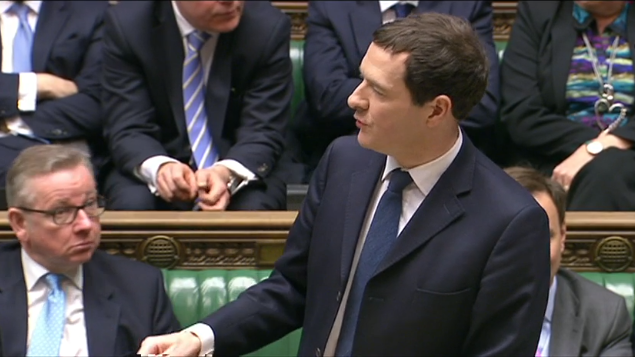The careless Chancellor's Budget turned to dust – and he got away with it
George Osborne admitted to a 'mistake' in the Budget debate today. For once a politician has correctly assessed himself


George Osborne is not a hard-hearted man who delights in taking money away from disabled people and the working poor. But he is careless. He is not interested in social justice, except as a slogan. So when he did his Budget-by-numbers, trying like a content-free Gordon Brown to meet several intensely political objectives at once, he simply didn't notice that the losers would be people on disability benefit and low-income workers while the beneficiaries would be those earning more than £42,000 a year.
In some ways, the Chancellor was too honourable. He wanted to fulfil his manifesto promise to cut £12bn a year from welfare spending, and he wanted to set out spending plans to meet his target of a surplus by 2020. He seemed not to realise that the costs of retreating from either of those objectives would be negligible. Nobody, even on his own side, thinks they are a good idea.
So he learned the hard way. Today, he had to redefine the £12bn welfare cut to mean £12bn a year of cuts minus £1bn a year of unexpected higher spending on disability benefits. If he had done that in the Budget last week, Iain Duncan Smith would still be in the Cabinet and he would still be in with a fighting chance of taking on Boris Johnson in the Cameron succession battle. So it's swings and roundabouts: he would have been better off in one respect, at least.
The 2020 surplus is still there in the books, although it is £1bn lower than it was in the Budget, but Osborne has discovered that simply abandoning the disability cuts was a cost-free option after all. This afternoon, Conservative MPs cheered him happily as he performed a three-point turn in broad daylight on the floor of the House of Commons. "We've made a mistake," he said to Chris Leslie, one of Labour's shadow shadow chancellors, who demanded that he admit he'd made a mistake. "We've listened and we've learned."
To Rachel Reeves, Labour's other shadow shadow chancellor, he said there are "no further plans" for cuts in the disability benefits budget. In other words, the plans announced in the Budget just six days ago are no longer operative and he will worry about whether the numbers add up later. Much later – in the Autumn Statement, which conveniently happens after the European referendum.
In a noisy Chamber – at one point I heard a strangled cry of "Fair?" from a Labour MP – Osborne repeated the claims he made in his Budget speech that he spoke for a "compassionate, One Nation Conservative government determined to deliver social justice and economic security". That was what the Budget – what was left of it, after the disability cuts had been stripped out – would deliver, he said.
I don't know if he had seen Nicky Morgan, the Education Secretary, confronted with the Institute for Fiscal Studies' analysis of the effect of the Budget measures last night. The disability cuts were always, to be blunt, a small amount of money in relation to total spending, and the Budget measures that are planned for the next four years, and which have been planned since last year's Budget, hit the poor and hardly affect the better-off at all.
There might be a case to be made for the Government. Fraser Nelson, the editor of The Spectator, thinks the continuing jobs miracle will boost the incomes of the poor by more than they lose in benefits or credits, as it did in the last parliament. But that case wasn't made by Morgan last night or by the Chancellor today.
I am led to conclude that he doesn't know what he's doing. He doesn't mean to be a hard-faced right-winger; he's doing it by "mistake".

Join our commenting forum
Join thought-provoking conversations, follow other Independent readers and see their replies